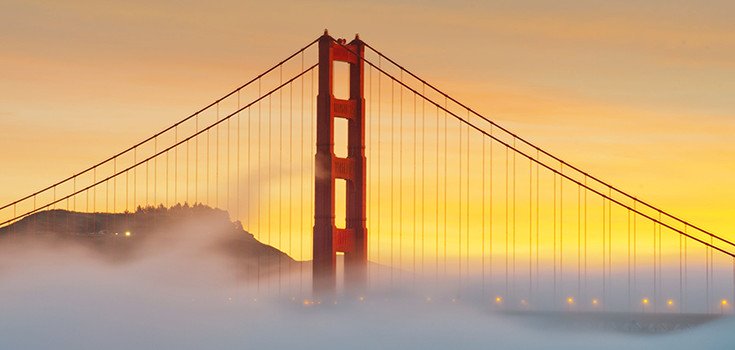Mercury Found in California’s Fog Could Harm the Food Chain

Every Californian has observed the Golden Gate Bridge disappear in a ‘cloud’ of fog, and though this is normally just a nuisance for passing ships, or a hindrance of the view from the Alamo Square, researchers have found alarming levels of mercury in the fog which could harm the ecosystem and human health.
Most of us know about avoiding mercury in fish due to health concerns, but the mercury in question here isn’t the same – it’s called monomethylmercury. In high enough levels, it can cause birth defects, kidney failure, and neurological impairment. Mercury compounds accumulate very easily in animals and humans, too, causing further health issues. This particular type of mercury is also one of the strongest known neurotoxins. [1]
The U.S. Environmental Protection Agency states:
“Acute exposure of humans to very high levels of methyl mercury results in CNS effects such as blindness, deafness, and impaired level of consciousness. Chronic exposure to methyl mercury in humans also affects the CNS with symptoms such as paresthesia (a sensation of pricking on the skin), blurred vision, malaise, speech difficulties, and constriction of the visual field.
Methyl mercury exposure, via the oral route, has led to significant developmental effects. Infants born to women who ingested high levels of methyl mercury exhibited mental retardation, ataxia, constriction of the visual field, blindness, and cerebral palsy.”
Interesting: Town in India Invaded by Toxic Waste Clouds
So far the levels of mercury detected in California’s fog are reportedly not high enough to affect humans adversely, but they can harm smaller animals in the food chain. If we consume those animals, we might be subject to physical impairments as well, as it travels through the food chain.
Mercury levels in our oceans have tripled since the Industrial Revolution, and levels of monomethylmercury have been rising for decades, as has the incidence of fog, according to Clive Dorman of San Diego State University. Dorman analyzed records of ships in the coastal areas in northern California and Oregon and found the number of foggy days went up 7.4 percent between 1960 and 2007. That increase reflects a similar trend to other high-fog regions of the world.
Sources:
